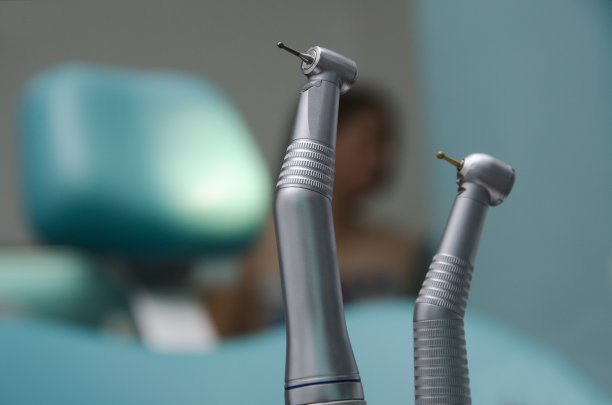Summary: Dental implant procedures are increasingly popular as a solution for tooth loss, but ensuring the safety and success of these procedures requires adherence to specific guidelines. This article explores essential factors to consider, including patient assessment, choosing a qualified professional, post-operative care, and the importance of ongoing follow-up. Each of these areas is crucial for achieving optimal oral health outcomes and minimizing complications during and after the implantation process. By understanding and implementing these essential guidelines, patients can enhance their chances for long-lasting dental implants and a healthier smile.
1. Comprehensive Patient Assessment Procedures

Before undergoing a dental implant procedure, comprehensive patient assessment plays a pivotal role in determining eligibility for the surgery. Factors such as medical history, oral health, and lifestyle habits must be evaluated thoroughly. A detailed analysis ensures that clinicians can identify any conditions that may complicate the procedure, such as diabetes or periodontal disease. Knowing the patients health status allows for tailored recommendations that increase the likelihood of implant success.
The diagnostic phase should also include imaging techniques like X-rays or CT scans to create a detailed view of the patients jawbone and surrounding structures. The quality and quantity of bone are crucial determinants for effective implant placement. If found lacking, solutions such as bone grafting can be explored to strengthen the jaw and facilitate a successful surgery.
Finally, establishing realistic expectations through thorough consultation can further better prepare patients for the journey ahead. Clear discussions about the procedure, recovery, and potential complications build trust and ensure patients are equipped to make informed decisions concerning their oral health.
2. Selecting a Qualified Dental Professional
Choosing the right dental professional is one of the most significant steps in ensuring the safety and success of dental implant procedures. Patients should seek professionals who are certified and experienced in implantology. Any discrepancies in skill level can lead to complications and suboptimal outcomes. Researching a dentist’s credentials, experience, and patient reviews can aid in making an informed choice that aligns with personal comfort levels and expectations.
Another essential element is the clinics technology and techniques. Advanced equipment and innovative practices can significantly influence the quality of care. For instance, computer-generated surgical guides enhance accuracy during the placement of implants, thereby improving success rates. Therefore, an office that employs modern technology can be a crucial factor in achieving optimal results.
Furthermore, establishing an open line of communication with the selected dental professional fosters a better patient experience. A qualified practitioner should be willing to answer questions and handle concerns, thereby providing assurance throughout the process. This engagement can lead to improved satisfaction and trust in the care provided.
3. Importance of Post-Operative Care
Post-operative care is a crucial component of a successful dental implant procedure, and this phase should not be underestimated. After surgery, strict adherence to prescribed medications and care instructions is essential to minimize risks of infection and complications. Patients should ensure they understand their post-operative guidelines, such as how to clean the surgical site and the importance of maintaining good oral hygiene.
Monitoring for signs of complications, such as prolonged swelling or unusual pain, should also be part of the post-operative care routine. Addressing these symptoms promptly can mitigate severe issues, leading to improved long-term outcomes. Keeping follow-up appointments with the dentist allows for timely evaluations and adjustments as needed.
Nutritional care plays a crucial role during the recovery phase as well. Patients are advised to consume soft foods and stay hydrated, facilitating the healing process. Proper nutrition can help boost the immune system, further protecting the surgical site from potential infections.
4. Ensuring Long-Term Follow-Up and Care
Once the dental implants are placed, ongoing care becomes crucial for ensuring long-lasting success. Regular dental check-ups provide opportunities to assess the stability of implants and surrounding gum health. Being proactive in oral care minimizes the risk of complications, including peri-implantitis, a disease affecting the gum tissues surrounding implants.
Moreover, education about maintaining oral hygiene is essential. Patients should be encouraged to use special cleaning devices designed for dental implants, as this care keeps bacteria at bay and promotes longevity. Incorporating good habits such as brushing at least twice a day and flossing regularly contributes significantly to the overall success of implant procedures.
Lastly, the importance of lifestyle choices cannot be overlooked. Smoking cessation and moderation in alcohol consumption are vital for optimal oral health and the longevity of dental implants. Engaging in these practices contributes to healthier gums and tissues, prolonging the life of dental restorations.
Summary:
In summary, ensuring safety and success during dental implant procedures requires thorough patient assessments, selecting a qualified dental professional, adhering to post-operative care, and committing to long-term follow-up. Each aspect works synergistically to promote optimal oral health and minimize complications. By staying informed and proactive, patients can achieve the best outcomes for their dental implants.
This article is compiled by Vickong Dental and the content is for reference only.
Vickong Dental
Vickong Dental is a large medical group established in Hong Kong in 2008 by professors from well-known medical universities in Guangdong and Hong Kong, as well as medical doctors from key national '985' universities (including Master's supervisors and senior professors). The chain of branches brings together expert dentists with PhDs and Master's degrees from Hong Kong and Mainland China, committed to providing high-quality dental treatment.
"Vickong Dental Practices the University Motto of 'Healing and Serving Society,' with a Stable Operation for Sixteen Years. It Has Been honored with Hong Kong Enterprise Leaders's Choice,' and is a Global Trusted Implant Center for the Nobel Implant System. Recommended by Hong Kong Metro Broadcast and Guangdong Television, it Serves Customers from Over Thirty Countries and Regions, Gaining the Trust and Favor of Citizens from the Guangdong-Hong Kong-Macau Greater Bay Area and Surrounding Cities.

Thousands of customers' unanimous praise
The most recognized and highly recommended dental service by customers in the Guangdong-Hong Kong-Macau Greater Bay Area
We Ensure You Receive Detailed Care and Attention Here
Hong Kong standards, Shenzhen prices, Your Trusted English-speaking dentists

Vickong Dental Medical-Grade Instrument Disinfection Process
Vickong Dental Medical-Grade Instrument Disinfection Process

Vickong Dental Chain: A Warm and Comfortable Environment for Treatment






Appointment Hours

Q&A
Why choose Vickong Dental?
Vickong Dental practices the university motto 「Medicine to Benefit Society」, with each branch bringing together highly qualified dentists with doctoral and master’s degrees from Hong Kong and the Mainland, and has maintained seventeen years of steady operation。Recipient of 「2024 Hong Kong Enterprise Leaders Brand」, 「2025 Hong Kong Enterprise Leaders Brand」, a Nobel Biocare Global Trusted Implant Center, and a brand recommended by Metro Radio Hong Kong and Guangdong TV。
To date, we have served customers from more than thirty countries and regions,earning exceptionally high word-of-mouth recognition and trusted recommendations from residents across the Guangdong-Hong Kong-Macao Greater Bay Area and surrounding cities
We have eight major branches in Zhuhai、Shenzhen,and a consultation and service assurance center in Hong Kong,so you can book a free consultation at any time for any questions,which is very reassuring.
If I do not accept the quotation after the CT scan, will I be charged??
No! As long as the actual treatment has not started, you will not be charged any fees.
Will there be any additional charges during the treatment process?
No, there won’t be any additional charges. Before treatment begins, we will clearly explain the treatment plan and its corresponding fees. Only after the patient agrees and signs the consent form will we proceed with the dental service.
Can I pay in Hong Kong dollars?
Yes. Vickong Dental accepts payment in Hong Kong dollars. The amount will be converted based on the exchange rate of the day, and the applicable rate will be clearly communicated to you in advance.
Can I reschedule my appointment at any time?
Yes. Please contact us via **WeChat** or **WhatsApp** as early as possible, providing your original appointment time and details, along with your preferred new date and time slot for rescheduling.













